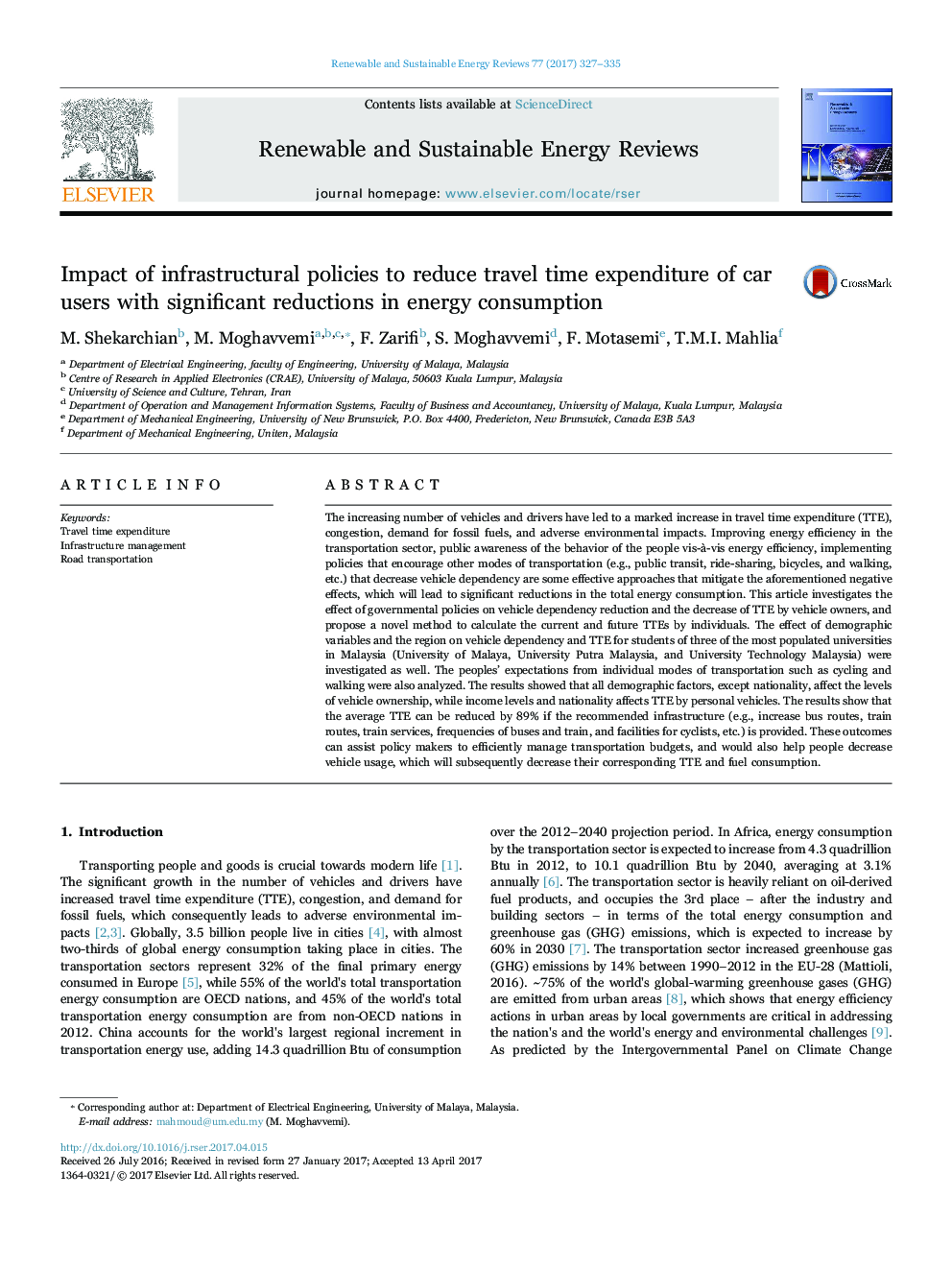| کد مقاله | کد نشریه | سال انتشار | مقاله انگلیسی | نسخه تمام متن |
|---|---|---|---|---|
| 5482942 | 1522309 | 2017 | 9 صفحه PDF | دانلود رایگان |
عنوان انگلیسی مقاله ISI
Impact of infrastructural policies to reduce travel time expenditure of car users with significant reductions in energy consumption
ترجمه فارسی عنوان
تأثیر سیاست های زیربنایی برای کاهش هزینه مسافرت مصرف کنندگان خودرو با کاهش قابل توجه مصرف انرژی
دانلود مقاله + سفارش ترجمه
دانلود مقاله ISI انگلیسی
رایگان برای ایرانیان
کلمات کلیدی
هزینه سفر زمان، مدیریت زیرساخت، حمل و نقل جاده ای،
موضوعات مرتبط
مهندسی و علوم پایه
مهندسی انرژی
انرژی های تجدید پذیر، توسعه پایدار و محیط زیست
چکیده انگلیسی
The increasing number of vehicles and drivers have led to a marked increase in travel time expenditure (TTE), congestion, demand for fossil fuels, and adverse environmental impacts. Improving energy efficiency in the transportation sector, public awareness of the behavior of the people vis-Ã -vis energy efficiency, implementing policies that encourage other modes of transportation (e.g., public transit, ride-sharing, bicycles, and walking, etc.) that decrease vehicle dependency are some effective approaches that mitigate the aforementioned negative effects, which will lead to significant reductions in the total energy consumption. This article investigates the effect of governmental policies on vehicle dependency reduction and the decrease of TTE by vehicle owners, and propose a novel method to calculate the current and future TTEs by individuals. The effect of demographic variables and the region on vehicle dependency and TTE for students of three of the most populated universities in Malaysia (University of Malaya, University Putra Malaysia, and University Technology Malaysia) were investigated as well. The peoples' expectations from individual modes of transportation such as cycling and walking were also analyzed. The results showed that all demographic factors, except nationality, affect the levels of vehicle ownership, while income levels and nationality affects TTE by personal vehicles. The results show that the average TTE can be reduced by 89% if the recommended infrastructure (e.g., increase bus routes, train routes, train services, frequencies of buses and train, and facilities for cyclists, etc.) is provided. These outcomes can assist policy makers to efficiently manage transportation budgets, and would also help people decrease vehicle usage, which will subsequently decrease their corresponding TTE and fuel consumption.
ناشر
Database: Elsevier - ScienceDirect (ساینس دایرکت)
Journal: Renewable and Sustainable Energy Reviews - Volume 77, September 2017, Pages 327-335
Journal: Renewable and Sustainable Energy Reviews - Volume 77, September 2017, Pages 327-335
نویسندگان
M. Shekarchian, M. Moghavvemi, F. Zarifi, S. Moghavvemi, F. Motasemi, T.M.I. Mahlia,
